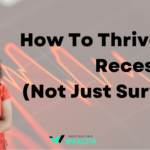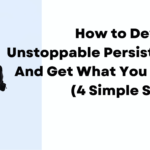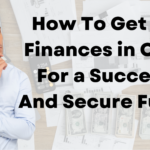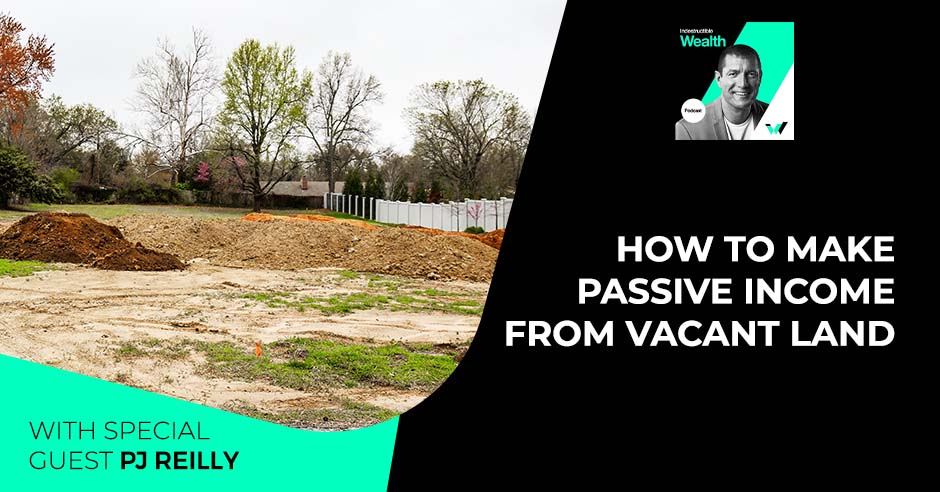
This episode is packed with excellent content and resources to help you live the life you dream of, the Indestructible Wealth way. My book, “Building Indestructible Wealth: The Six Figure Earners Guide to a Multimillion-Dollar Portfolio,” just launched. Get your print and audiobook copies and a few other timely insights into what to invest in right now at this link: https://bit.ly/3xjGFQ7
Do you have a question you would like me to answer on the podcast? Follow me on IG: @indestructiblewealth and send a message, or visit me at www.myindestructiblewealth.com for more resources.
You can connect with PJ on Facebook: @pjreilly
On Instagram: @landlife and @pjreilly
On YouTube: @Thelandlifechannel
And on Tik tok @pjreillyislandlife
—
Listen to the podcast here
How To Make Passive Income From Vacant Land With Special Guest PJ Reilly
In this episode, I’m interviewing a special guest. PJ Reilly is a former MMA fighter turned vacant land investor. Who would’ve thought that you could make this money off vacant land? As you’re going to read through the interview, it’s very accessible for you guys to do it as well. On top of that, if you don’t want to do anything, you can partner with him to produce a very passive income. Let’s get right to it. PJ Reilly of Landlife, how are you doing?
Jack, I’m doing great. Thanks for having me.
I was on your show last time, which I enjoyed. Now, you’re coming on mine because I know what you have to offer with your business and services fits into everything that I talk about in my show. How did you get started? A little bit about your background or wherever you want to start is great.
Let’s go back as far as we can go back. My dad was in the military, so we lived all over the world. We’re traveling from country to country. We landed in Denver, Colorado, years ago. That’s where I’m at now. I went to high school and college in Colorado. I got out with a 2.0 GPA. I was killing it. All the big colleges were calling me. Academic scholarships were being thrown at me with that 2.0 GPA.
Keep in mind, the A students end up working for the C students.
I do appreciate them. They do a great and phenomenal job. They cross their Ts and dot their Is. They’re good with all the stuff that I don’t understand. College was the same way, though. I got out with a 2.0, but I did graduate. From there, I was like a serial entrepreneur. I would try all these different endeavors. I was a personal trainer and a professional fighter and did direct sales. A friend of mine got pulled over and got arrested for having a ticket that he never paid. They take him to jail and he gets out of jail and comes to me and he says, “You’re a business guy. We need to figure out a way to fix this problem.”
I believe you just have to pay for your ticket when you get it to fix the problem.
If you paid your ticket, you’d be fine, but we’re thinking differently though. We’re like, “We need to think a little more entrepreneurial. What if we put credit card readers into police cars?” You could get pulled over and run your card, so easy-peasy. We got all these different vendors, Bank of America, and all these other big companies to give us readers. We contacted all these police departments all over the entire country. The effort was there. The problem was these guys didn’t want their police officers and sheriffs to be cashiers. I totally understand that. Business went up and went way down, but it was another endeavor.
I love the idea, though. I’d much rather get the pain over and give them my card and be like, “Swipe it. Let’s go.”
You don’t have to go to court and remember this certain date to get this thing mailed in or whatever. You can do it online now, but we had a cool idea back then and thought it might work, but things happen. You learn on the way. You learn all these different skills and stuff that you didn’t know.
Do you have a spot where you could add a tip for the officer at the end of the receipt? Based on the tip and it reduced the speed that you were over.
It’s a percentage too. It keeps going up. The higher percentage of your tip, the lower the points you lose.
I love it.
I should’ve had you then. If we had you on the team back then, we’d be billionaires right now.
It would’ve been an asset, not a liability. That’s what I always tell people.
It keeps going. I have a job at this time. I usually work government jobs, county jails, prisons, and things like that. I’m always adding these other things on the side. I’m doing direct sales for a couple of years. I accumulate about $1,200 from a sale. I’m excited about this. I have the money and put it in an envelope and I’m like, “What am I going to do with this?” I got a buddy at work and he says, “You need to go invest in Detroit and buy all these houses. You can get them for $1. Go do it.” I’m like, “$1 for a house in Detroit?”
I go in online searching and found out it’s not nearly as easy as $1 houses. There are tons of issues with those houses. You’re going to put in all this wiring and stuff and it’s going to get ripped out tomorrow. My $1,100 wasn’t getting me a house in Detroit. During the course of my search, I find this guy. He’s got this video about how to buy and sell vacant land. I was like, “Land? The dirt?” That’s what it was. You buy the property from the owner and sell it online. I was like, “I can do that.” I get about halfway through the video and don’t finish the whole video because I’m a ready-fire-aim type of guy. I’m like, “I want to go. I don’t want to wait and figure everything out,” which I probably should have done.
I get on Zillow and I see a guy who’s got two properties for sale about two hours South of me. These things are $1,100 each. I have $1,100 and I can get one of them, but I’ve gone far enough through the land investing video where I see that you don’t offer retail. You lowball these guys. I’m like, “Okay.” With all the 30 minutes of skills that I’ve acquired, I say, “You got two properties for $1,100 each. What if you gave them to me for $550 each?” I got them both for $1,100. Here’s me thinking I’m a genius.
Were these in Detroit?
These were in Southern Colorado properties.
How much land are you talking about?
1/4-acre squares with maybe a dirt road. There’s nothing on them. No utilities or anything like that, but I’m like, “Buy the land for this low price. Worst case scenario, I got some land that I own now that I have to pay minimal taxes on.” The guy says yes. He’s like, “Absolutely. We can do this.” I have no idea where to go from this point. I don’t know how to write up a contract, deed, or anything. I’m like, “What do we do now?” He goes, “Don’t sweat it. I got this. I’ll write the deed. Send me the check for $1,100 and we’ll get it all squared away,” and he did. The county sent me the recorded deed and I own these two properties. I was like, “I better get back to that video,” so I finished the video.
You haven’t even finished the video yet to tell you what to do after you bought them?
Not a clue. I’m like, “I don’t care. I’ll figure it out.”
That’s a textbook example of ready-fire-aim.
I don’t know what I’m doing, but I can figure it out. Nothing is beyond the realm of possibility. I was like, “For $1,100, worst case scenario, I own dirt. I’ll do that.” I got the deed back. I finished the video. They say you got to market stuff and sell it online. I sold these two properties. I sold them each for $1,500. I almost tripled my money.

Passive Income: Nothing is beyond the realm of possibility.
That’s a good deal. How long did that take?
A couple of weeks. Remember, I didn’t know what I was doing, so my ad looked so stupid. It was me copying what people wanted to hear. I drove out there and took pictures of it. I was so excited to see my very first property. I’m taking these pictures of my phone and writing this lame ad, and they sold it immediately. It’s a win.
Did somebody pay you cash for those properties?
Yes.
You flipped land and tripled your money. You’re probably thinking at that point, “I might be on to something here.” Where do you take it? What’s the model look like now? How’s it evolved?
From that point, I mass mail and it’s a progression. I didn’t start this way. I would handwrite letters initially and they were really bad. I’m like, “I got to figure out a better system. I would get a letter printing company and virtual assistants to help me out, but what I basically do is I find an area where I want to buy land and I send an offer letter to every single owner in that subdivision or that county. For this specific business, it’s always vacant land.
Your handwritten letter, I wouldn’t be surprised if that got a better response or open rate, didn’t it?
Percentage-wise, it got a great response. It got an amazing response. It’s hard to write hundreds and hundreds of letters, though.
You can’t scale that, but initially, you probably got a pretty good response because when I get a handwritten letter, I’m going to pay attention to that over a sales letter-type thing.
I’ll send every single property owner the same letter with an offer price on it, a dollar amount. They see exactly what I’m willing to pay for their property. There’s some difference. It can go up or down based on certain criteria. If the property has no road or no access to it, I’m going to pay less. If there’s a well on the property, I’ll probably pay more. I have a general idea of what I want to pay to buy these properties.
Everybody gets a letter. What I do is I send a list of owners to my virtual assistants and they clean up the list. They make sure it looks nicer or a little prettier. They send it to a letter printing company. The letter printing company kicks it all out to the owners of the property. The owners of the property call my answering service, PATLive. It’s a fairly normal answering service. They take the calls, ask a few questions, and then give me the information. From there, if it’s a property, I want to move on. I’ll give them a callback and buy the property.
You’re buying these properties in terms of what range of pricing?
There’s a huge range. You can buy a property online for $100. I don’t do that, but it’s possible to do that. Typically, I’d say I buy at about $5,000 to $15,000 and sell for about triple. It’s a lower amount, but you can scale that much faster than if you’re buying a bigger property and trying to sell it one-off. I’ll buy these, let’s say, 4 to a 6-acre properties for anywhere between $5,000 and $15,000 and sell them online for anywhere between $15,000 to $45,000-ish.
How do you triple them? It seems like you’re doing that consistently. How are you selling them cash or seller finance? What are you doing?
Most of it is seller financing. With land, especially those lower price properties, you’re not going to be able to go to a bank and get a loan for land. They won’t loan on that. What I do is I owner finance everything. Everything is in-house owner financing.
Facebook is good for lower-priced properties. You're not going to sell any hundred thousand dollar properties for cash on Facebook. Share on XFor the readers, seller financing or owner financing, he’s simply becoming the bank and offering a note. Instead of the person buying going to him and paying him cash or going to the bank, having the bank pay him a loan, which the buyer assumes paying on that note, PJ’s creating the note himself. He became the bank and whatever you’re selling or offering to the buyer at whatever terms that you set, and simply take monthly payments as if you’re the bank. It’s simple.
It is simple.
It’s awesome. As you’re willing to seller finance, that is why you’re getting triple.
It’s also why I’m getting so many responses. If I put a property online, sometimes it sells in twenty minutes. Think about it this way, too, a lot of people want land. In certain parts of the country, land is like your status symbol. Let’s say you’re in Arkansas, Oklahoma, Alabama, or any of these states where you show up to the county fair in a Ferrari. They’re going to be like, “Who’s this uber?” If you show up and talk about the 40 acres you own out in that place where everybody loves to go hunting, you’re the hot shot or the big star. It’s a status symbol.
If I can go into these places and buy a property, sell it to these same guys who maybe couldn’t afford $20,000, but they could afford $400 a month for 50 months, they could do that. They’re still getting their version of a Ferrari. They’re still getting that beautiful property they want. They can afford it. Everybody wins. They jump online and see me offering that. It sold fast. I’d say tops 24 hours for a good property out in that area, something like that.
Where are you posting them to? Is there a specific website that then pushes it out to multiple websites?
Facebook is the best place to sell these things quickly. Facebook’s good for lower-priced properties. I’m not going to sell any $100,000 properties for cash on Facebook, but if I have a $20,000 property, $400 a month, that’s going fast. There are so many eyeballs looking at you on Facebook. I will put it on like a local buy-sell group. If I’m going to sell outside of Tulsa, Oklahoma, I’m a member of every single buy-sell group in that area. I’ll list it on every one of those buy-sell groups. I also listed it on Facebook Marketplace based on ZIP code, and that thing will get seen by thousands of eyes within the first hour. I will get tons and tons of messages, comments, and calls. Before we started talking, a flood of calls came for one particular property.
Can you give me that as an example?
That one is 40 acres in Southern Wyoming and it has a dirt road attached to it. I’m selling it for $27,000 at $300 a month.
How much did you buy it for?
It’s $8,000, maybe.
It’s triple.
Yes. That would happen to be a good one. Sometimes you get good ones, and sometimes you get ones where you buy for $5,000 and only sell for $8,000 based on whatever, but it’s usually my error. I’ll buy something and be like, “I didn’t notice the giant dump next door where the guy has eight trailers that are blown up, all these RVs tipped over, and trashed everywhere.” I didn’t even see that. I still make money, but it’s not as much as I would’ve made. This particular one, it’s 40 acres right at the base of a mountain, but it’s more of a hill out there. It’s a clean slate to work with.
What is the buyer going to do with the property? Why would they want the property in the first place if it was already for sale? They could have bought it themselves.
No, I contacted the owner to buy this. That one wasn’t for sale. The owner happened to own a property. He didn’t want to sell it until I talked to him.
Are a lot of the properties that you’re buying not listed anywhere?
Almost none of them are for sale. Usually, the seller is someone who says, “I’ve been paying taxes on this thing for 30 years. We had this idea to go out there and build on it. Honestly, I’ve never been out there. I shouldn’t have bought it in the first place. If you want it, it’s yours. Take it off my hands. I’m tired of paying taxes on it.” That’s usually where I get those.
On this property, what are the terms that you’re selling it for? You bought it for $8,000 and selling it for $27,000. You’ve got plenty of interest, so it seems like your price is totally good. It sounds like you could even raise your price, maybe, but do you want to move them quickly?
It’s funny because that’s the 5th or 6th one I’ve had in that area for that same price and they sold so fast. I didn’t even think twice about it. It was almost like a template ad. I kept putting them online. You’re probably right. I could probably raise the price.
What’s the interest rate, terms, and all that?
It’s 0% interest or no interest.
Do you always do no interest?
Yes, almost always. It beats out all my competition. Everybody else that offers has some document fees, extra interest fees, and all these things that the buyer doesn’t realize are there until they start buying. It’s like buying a house. You don’t know all these extra fees. I hate doing that. I hated dealing with that when I was the new guy trying to buy stuff. I just say, “No interest. This is what you pay. If you want to buy it, it’s yours.”
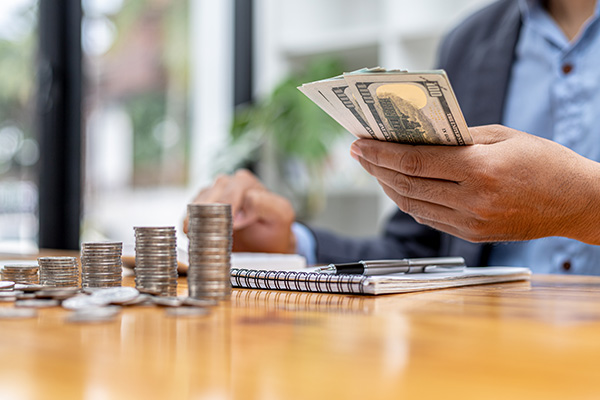
Passive Income: Everybody else that offers they have some document fees, extra interest fees, and all these things that the buyer doesn’t realize is there until they start buying.
Even though you’re not charging interest because you’ve tripled the price, what’s your yield? What’s your monthly or yearly yield? For the readers, yield means the return on investment or ROI.
If it’s $300 a month, it’s going to take me typically three years to get my money back. The terms would be 90 months, whatever that would be for this property.
If we take 90 months times you said $300, so that’s your $27,000. I’m trying to figure out what’s your ROI percentage on an annualized basis and how you figure that with 0% interest.
That’d be difficult.
We know that over a 90-month period, you’re going to triple your money or they’re going to default, take whatever they gave you for the property up until that point, or over however many payments they made you take your land back, and then you do a new deal.
That does happen. I’m about a 30% default rate, which is pretty high. I don’t like them to default, though. I want them to get the property they talk to me about. When you’re selling these properties, you’re having a conversation with these guys. They have this dream to build on it, hunt on it, have a place for the family to go camping or own land, and tell their friends about it. That’s a big one too. These guys want to tell their buddies that they own land. It makes them look cool and that’s their status thing, which I totally understand.
When they go to default, I try to do anything I can to give to keep them on the line. I want them to keep this property, “You’re telling me you’re not going to be able to make payments. What happened? Did you lose your job? What’s going on in your life?” Sometimes they’ll say, “Yes, I lost my job.” I’m like, “I understand. What about a couple of months off? We’ll come back in two months. What if we lowered your payments? What if we made it $200 a month instead of $300? Would that help?” The vast majority of people that default never call me back. I never see them or speak to them again. They disappear. They don’t answer any calls. They don’t answer any emails. Nothing.
Did they just stop paying?
Yes.
How do you handle that? Is it simple to get the land back?
It’s super simple.
You don’t want to go through six months of court and there’s no eviction, which is nice.
The contract is basically a handshake between me and the seller or the buyer. It’s never recorded through the county anyway. That land contract they signed and I signed is not a recorded contract. The only recorded contract is the deed once it’s finalized.
The deed is only finalized once they are paid in full.
I don’t have to do anything. I send them an email. “You haven’t paid in a while. You got to make a payment or your contract’s going to be canceled.” I then send them another email. After a while, I’m like, “It’s done. You lost the property.” I give them 60 days from their last missed payment. The majority of them go away, though. You never hear from them again.
You take the property back and you say, “No big deal. I’ll rewrite another deal with somebody else.”
Yes, absolutely.
That’s really simple, which is awesome and what we want.
It’s a low-barrier entry.
Especially with a 30% default rate. I always have a hard time with the concept of buying something for status. The NFTs that people are buying, especially the Bored Ape Yacht Club, are going for several hundred thousand. What do you do? You’re buying it for what? It has no intrinsic value other than to post on Twitter as part of my profile picture. I never understood that concept. It’s not an internal need for me.
To a lot of people, it’s not, but there’s also a huge group of people out there, as you said, NFTs, cars, or whatever their thing is, they want it and will pay for it.
How many properties do you have? How many are you doing this with? How many do you do a month? What’s your volume look like?
Overall, I’ve done around 400. I’ve been doing this for a couple of years, so 400 properties roughly. Now, we have around 60 to 70 payments in that area.
Are there some that have been paid off?
That’s what I have that people are making payments on.
You’re saying you’ve done 400 and got about 70 still paying the rest?
They’ve been paid off.
Paid off, transferred the deed, and they’re gone.
It’s either a cash sale or a finished contract, but they’ve started and finished everything.
Do you give them a cash sale discount?
Absolutely.
What does that look like?
It’s usually double of whatever I paid because it’s still a good deal. When I work out the purchase price that I’m going to make, it’s fairly low. There’s got to be some meat on the bone for the person who wants to buy it if they’re going to pay cash. If they’re a flipper or whatever, I try to make it to where it’s still under retail cost. If they were to buy the property in cash from me, it’s still going to be lower than the going retail rate.
This has been coming up where I feel like I’m giving some of these guys lectures. I wouldn’t call them essentially students of mine because if they’re students, they would be doing what I told them to do mostly. They’re just people I know or heard about, typically not on my platform. What’s happening is they’re buying digital assets as their first investments, whatever that may be. That could be crypto, e-Com stores where you’re buying the digital rights to having products sold through Amazon or Walmart rate, NFTs, or whatever the case.
My philosophy is that for your base layer, when you’re first getting started, buy something that’s going to last. Buy something that’s going to be here in a decade, two decades, or beyond. Digital assets are very risky, no matter what you get, because we’re still in the very early stages of those. I love this because you’re buying something that will always have value. Years from now, will your land have value? Yes. They’re not building more land.
If you're first getting started, buy something that will last, something that will be here in a decade, two decades, or more digital assets. Share on XThere’s no adding more land. It’s a finite resource. In my opinion, this is great for younger investors, too, because you’re not talking a lot of capital. Most of the guys I see buying digital assets are working off the $30,000 $40,000, $50,000 to $60,000 type of thing. I want that money for them to be protected. What are your thoughts?
This cashflows too. If I own land and can’t sell it for the triple that I want to sell it for on payments, I’ll hold it. I’ll keep it up for sale. Worst case scenario, the value is going to keep going up and I’ll just hold it. I don’t have to sell it right away. I buy things that cashflow. I will only buy something that can make me more money.
You’re not buying it in the hopes that it’s going to go up and somebody’s going to pay me a higher price later. You’re not speculating. You’re buying things that you can immediately drive cashflow income from.
That speculation is the worst-case scenario. I know it’s going to go up in value so later down the road, it’s going to sell. I wouldn’t buy it initially if I didn’t think it could cashflow right away. Things like those digital assets like crypto, don’t get me wrong. I love it.
I do too. I talk about it all the time on my show.
My problem with a lot of young people that don’t have excess cash to invest is they’re using the money they would use to pay the water bill because they think if they buy this digital asset, it’s going to quadruple and going to make a stupid amount of money, going to live in a mansion, have a Ferrari, and all that kind stuff. My advice is to take it for what it’s worth to find something that’s going to cashflow first. Invest in something that’s going to make you more money now. Use the proceeds of that money.
Warren Buffett says, “Don’t invest in things that you need for your bills. Use that money or those proceeds from that money that you’ve accumulated through your cashflowing investments, typically real estate or things like that to invest in crypto stocks from all those extra things. I would not recommend using your money. You only make X amount of dollars anyway and you’re forcing these investments. They might work, but they might not. They’re more long-term strategies.
Don't invest in things that you need for your bills. Use the proceeds you've accumulated from your cash-flowing investments. Share on XYou summed up my entire philosophy of investing. You validated it because everything I talk about is creating multiple streams of cashflow positive income first. That’s your first priority. 80% to 90% of your portfolio or your investible dollars goes into good solid assets that are going to produce cashflow. Typically, it’s real estate. We can do stock options and mine crypto a little bit risky right on those two, but still safer than buying the assets and waiting for them to go up, you take your streams of income that are coming in and that’s what you can speculate with because that’s house money. You’re playing with house money. Have you ever gambled?
Yes.
What’s the strategy when you gamble? “I buy them for $500 and I double up to $1,000 playing blackjack in Vegas. I’m going to take $500 and play with the $500. Now, I don’t have any risk right now.” It can go the other way and you lose the first $500. You don’t have house money to play with but the concept is let’s de-risk ourselves as much as we can.
You can see, though, how it’s enticing, especially to the young guy or guy that’s never had money or achieved what they always wanted to achieve. You go on Instagram, Facebook, or any of the social media sites and see guys saying, “I invested my money in crypto, stocks, or whatever. Now, I’m a billionaire.” There’s a picture of them next to a Lambo. They’re getting onto their private jets.
You can see how somebody who didn’t have anything. They could be 25, 35, or 85, if they are thinking, “I miss my boat. I never quite made what I knew I could have made.” “Here’s the quick fix right here.” “I could get a Lambo and jet?” “Yes.” They’re going to jump on that. It’s exciting and visual. There are so many things where they think, “This is my ticket to catch up on where I missed all those years.”
Usually, that ticket goes south. Most of those do not work out. Humans are so unique. We want to do the least amount of work we possibly can to get the highest reward that we possibly can. What you have to do is fight against that urge. It’s tough because I did the same thing when I was 22. I saved up $50,000 in college and put it into high-risk tech stocks. I wanted to be a millionaire by the time I was 30, and I thought that was my ticket.
They crashed in 2000 and went down by half. I lost half my money and then panic sold. If I would’ve done something like this or what you’re doing and with that $50,000 and then the proceeds that are coming off of that if I would’ve gotten a little bit more gambling with money, fine. If it doesn’t work out, your money keeps replenishing. In one month, you say, “I want to get crypto this month. I like this one.” I’m popping my 1, 2, or 3 months of proceeds in, and if it doesn’t work out, what happens?
Nothing happens. That happened to me a few years ago. I did exactly that. I bought crypto with the money I made from land. I used a couple of months. I was like, “Why not? Let’s give this a shot.” We’re having slow months as far as new acquisitions were. There were not a lot of new properties coming in. I was like, “Let’s use that money to buy something else.” I bought crypto and here we are with that too.
It didn’t go well for right now, but as long as you hold, five years from now, that’s going to be good.
I won’t sell. One thing, too, a lot of people don’t realize how good they can deal, but a lot of people don’t realize how successful they can be if they put a little bit of work into something. It seems so overwhelming because they don’t know anyone who’s done it. Their parents didn’t do it. The only people they know that are successful or maybe somebody they saw online, maybe Jack and saw you on TV online,” or something like that. I can’t be like that. That’s way too much work. That guy’s smart, but you can through simple consistency.

Passive Income: Many people don’t realize how successful they can be if they just put a little work into something.
I’m not a smart guy. I just don’t stop. I don’t take a lot of days off. I don’t quit, even when it’s difficult and it’s like, “Wow. This is confusing. I don’t understand this.” I figure out a way to work around it. I do understand what it’s like on day one where you’re like, “I would much rather buy that crypto. It’s going to go 10X and I’ll be rich.” I get that, but I’ve also jumped into the fire and been like, “What’s going to happen here? I lose and fail? I’ve already done that plenty of times, so let’s give it a shot.” I just keep giving it a shot and be more consistent. You will get to the level that you want to be over time.
I’m with you. I can’t tell you how many times I’ve done something in business or investing and it didn’t work. What happened? I learned. I picked myself back up and then fire away again.
Don’t quit. Keep going. Sometimes you’re going to fail and then fail again, just keep going. Don’t stop. One thing I would highly recommend is finding a mentor, coach, or something like that. I consider a coach like a cheat code for life. If you are that new person, I’m not saying a young person because there are a lot of 45-year-old guys out there that never took their shot and they’re reading this podcast right now thinking, “Can I do it now? Is it too late?”
It’s never too late. Find a mentor or a coach. They’re going to give you a cheat code for life and business. They’re going to tell you to turn left when you were going to go right. They’re going to move you in the right direction a lot faster than you would’ve done yourself, especially if you’re a little bit older. Get a coach.
Find a mentor; find a coach. They'll give you a cheat code for business. They'll move you in the right direction faster than you would've done yourself. Share on XBased on everything I’m researching and reading about human life expectancies, if you can live the next decade or live until 2035, you’re probably going to likely to live past 100 to 120 with everything that’s happening in biotechnology. It’s crazy. Life Force by Tony Robbins. That book is all about human extension and quality of life extension. The point is even if somebody’s 50 or 60 and they’re like, “I missed so much.” You still got time. You may have a lot more time than you think you do. Again, you can’t use that as an excuse not to take action now because time does go by quickly.
I want to be passive in this. I’m sure a lot of readers are like, “This is so good,” but I’ve already got this business that I’m running or in a startup. I don’t want to distract myself to learn something else because this is going to take time to learn what you’re doing, replicate, and be able to do it effectively. It’s like, “You can’t jump into it.” You got masterful at it. That’s not how anything in life works. How do we do this passively? Do you have any suggestions for what you’re offering?
You can always work with me. That’s never not an option, but there are a lot of people out there that will invest for people like you. It’d be somewhat like a REIT for land. You pull in money, buy X amount of properties, and then you get a return on that. There’s also a one-off which is probably the best return on your money. For example, I find a beautiful property. It’s going to sell for a ton, but I don’t have money for it. You come in and offer financing for said property. We go halves on the deal and you get half of the profits on that. Once your money is made back, we go 50-50 on the profits. That’s always an option too.
You’d mail out all the letters, analyze, do the research, and you’re like, “This is a good place to try to buy something because this land is going to hold its value or it’s going to cashflow quickly.” Are you getting it under contract?
In that specific situation, we would get it under a contract. We would buy it under a different LLC name. We’d make something up between the two of us. We would have to go through a title company. It would not be my typical purchase where I buy it myself because it would be you and I now. We would have a different LLC and that company that would buy this property.
“I found the property and negotiated with the seller,” doesn’t mean much. You and I formed our own company or LLC for this one-off deal. We would buy the property and sell it as an LLC as well. We’re talking about much higher price properties. We sell it through a realtor or a land real estate company and then split the profits from there.
I want to make sure the readers are seeing how this would work if they want to get involved. If you’re setting up an LLC, you’re both members of the LLC?
Yes.
That’s pretty simple to do. That takes $300 on LegalZoom.
It depends on where you go. You can get it for $50 online.
For those of you reading, you guys are learning a lot on this episode. An operating agreement is going to spell out the terms of the deal between the two of you, right?
Yes.
That’s going to dictate the profit split which you already said, but it’s all in a legal contract. Give me an example of a deal. What would it look like? How much would it cost? I’m assuming that $5,000 deal or $10,000 property, you’re going to buy those yourself. You are always going to have the cash for that. You don’t need an investor. The ones that you’re talking about with the LLC arrangement with you, what do those deals typically costs, $30,000, $40,000, or $50,000?
Around $30,000 or above, I would find someone else.
Are you then selling that for $90,000?
For those ones, anything higher. Every time you come up, you get bigger dollar properties. The percentage comes down little by little. Let’s say anywhere between $70,000 and $90,000 would probably be the sale price.
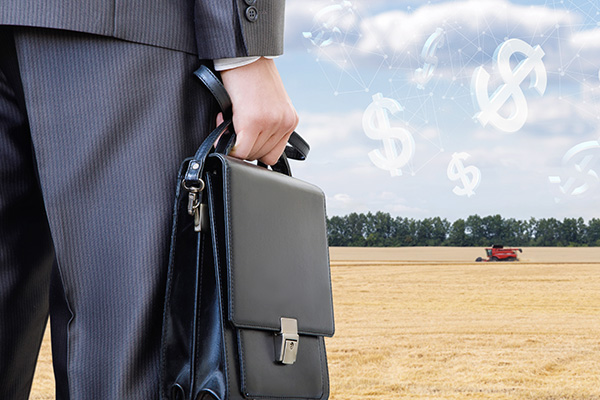
Passive Income: So every time you come up, you get more significant dollar properties. The percentage just comes down little by little.
You can’t necessarily triple the price and be able to stay within the market.
If you look at it, too, the returns are super high as you get bigger. If you’re buying a property for $100,000, but you’re not tripling, you’re doubling. Let’s say you sell for $200,000. That’s a $100,000 property versus what I’m doing at the lower end. I’m tripling my money, but it’s $5,000 purchase price to $15,000 sale versus $100,000 purchase price to $200,000 sale. As the percentages come down, the higher you go, but the return is much higher.
It’s very simple. There are no toilets or tenants. You don’t have to worry about a lot of things. If you were to invest your money in something like that, you can know that you’re not going to get a call at 3:00 in the morning that the toilet is broken or that the renters ripped out all the wiring in the house and took off or anything like that. It does set your mind at ease to some degree. You’re always going to be on your edge to wait until the thing sells because you want your return. The things that can go wrong, someone can come and take a bunch of buckets and pull all the dirt off and cut down some trees, maybe.
There’s not a lot that can go wrong other than you buy the land and then you don’t find a buyer.
I’ve never done it. That’s never happened but it is possible.
You’re saying over the 400 properties, you’ve never knocked on the buyer?
Yes. It’s very easy. Higher dollar properties always change things, though. The higher you go, the slower the process will be too. It won’t be 20 minutes, 30 minutes, or overnight. The buyer pool for a $200,000 property is significantly lower than for a $ 300-a-month property. Your buyer pool’s going to get smaller, but they’re less likely to default last minute, too, when you’re going to buy.
Let’s say somebody wants to learn from you. They’re like, “I want to learn how he does this. I want to do it on my own. I want to split up 50-50.” If you want to be a passive investor and not have to do anything, that’s the way to go. What if they’re like, “I want to learn and do this myself?” Do you do coaching?
You can always call and message me.
Do you have coaching programs?
Yes. Land Life Coaching, you can do that. I keep it a very informal process. It’s all done on Zoom calls. You can call me and we can start with the very basics of land to where you’re learning 101-level stuff. If you’re already a land investor and want to run questions by me, you can always do that too. Basically, we set up a Zoom call and I’ll answer all your questions. I’ll help you out in any way that I possibly can with the land business, anywhere in the country.
Do you have a course?
Right now, it’s all done through Patreon, so Patreon.com/LandLife. I don’t do a ton of coaching. I’m not going to lie. Most of it is current land investors or people that are already in this business that have questions they want to be answered, they come to me for that.
What does it look if somebody wants to do the LLC deal and wants you to go out and find the property? You’re finding the buyer too, right?
Yes.
You’re doing the acquisition, sale, and all of that. Are you managing the payments that are coming in?
If we’re doing it on payments? Yes. I will manage all that.
Can you put more than one property into an LLC so you don’t have to keep setting up LLCs?
You could. I prefer to do one-off cash sales that are higher priced. I don’t like to do the payments if I’m going to work with somebody else. If I’m taking an investor, it’s going to be a one-off cash sale. It’s not going to be like the monthly payments. It’s going to be, “We’re going to put this thing online and find a buyer who buys higher-priced properties.” These will be cash sales every time. I will handle any transactions, but other than that, there won’t be any payments.
You’re saying when you get $30,000 to $40,000 properties, you’re selling those in cash. Are you not doing seller finance on those?
Yes. They have to be cash. There are too many moving parts. I much prefer to sell those things as one sale for cash.
If somebody wants passive income, then they would need to do the model themselves.
I can teach you all that or you can read the episode. You pretty much learn everything here. It’s not exactly rocket science here.
There are probably intricacies of what markets to go to and how to write the offers and mail out the letters. There are some details that they need to know. This is fantastic. PJ, how do people follow you if they want to learn more? Where do they go?
The way people get hold of me most is Facebook. PJ Reilly on Facebook. You can look me up on Instagram @LandLife and @PJReilly22. I’m on TikTok, so it’s @PJReillyIsLandLife. For YouTube, we got a channel, LandLife, so look that up.
You also have a podcast.
I have a podcast. It’s called LandLife. Jack was on and it was an awesome episode. You check that out. We have two episodes a week. It’s a general entrepreneurial podcast.
How long have you been podcasting?
Not very long. I’ve been guesting on a lot of podcasts.
Let’s get you some new followers.
I want to be the next Joe Rogan. As much real estate as Grant Cardone, I’m going to do that too.
This has been an awesome episode. I appreciate everything you shared. It’s an incredible model. It’s simple. It makes sense. Everybody can understand it. It’s an asset that’s going to be here years from now. That’s what you have to have in your portfolios, guys. You have to start thinking about a base layer of assets that are virtually indestructible. Land is indestructible. You have this base foundation of what PJ’s doing. It’s brilliant because you’re owning valuable land, finite, has demand, and you’re learning from somebody who’s done 400 deals. This is pretty sweet. It’s very good. Thank you so much for being on. I appreciate everything you shared.
Jack, thank you so much. I appreciate it.
That’s a wrap of this episode.
Important Links
- Landlife
- PATLive
- Life Force
- Patreon.com/LandLife
- PJ Reilly – Facebook
- @LandLife – Instagram
- @PJReilly22 – Instagram
- @PJReillyIsLandLife – TikTok
- LandLife – YouTube
- LandLife Podcast
- Episode – Episode of LandLife Podcast with Jack Gibson


